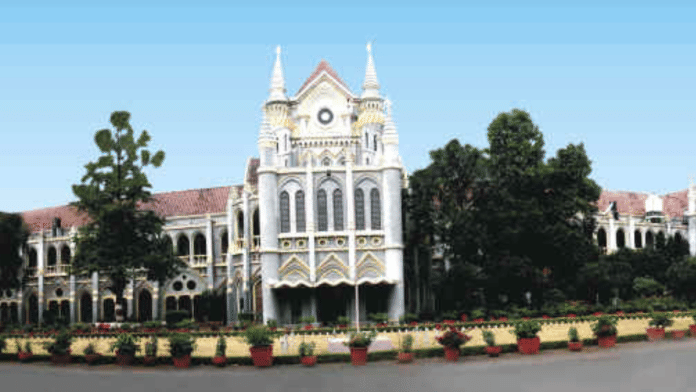New Delhi: The Madhya Pradesh High Court Monday held the editor of a Hindi daily guilty of contempt of court for a 13-year-old article in which he accused a then sitting judge of corruption.
Ruling that the article was aimed at “maligning” the image of the judges and lowering the standing of the court, a bench of Chief Justice Ravi Malimath and Justice Milind Ramesh Phadke held Suman Singh Sikarwar guilty of criminal contempt under Section 2(c) of the Contempt of Courts Act, 1971 and imposed costs of Rs 1 lakh, which he was told to deposit with the MP High Court Bar Association. Additionally, he was also asked to pay Rs 2,000 as a fine.
Sikarwa is the editor of the Hindi newspaper Dainik Chambal Vani, published in Gwalior. In his 2011 article titled ‘Sarvoch nayalaya aaj ki tara nishpakch ho jai to Judge Shri Mody ji ko jail mein hona tha’ (If the Supreme Court were as impartial as it is today, Judge Shri Mody would have been in jail), the senior journalist accused a sitting HC judge of colluding with a politician, hushing up cases and misusing his position to get his family into positions of influence.
The contempt proceedings were initiated by the registrar general of the high court, who found the article to be an “attempt to scandalise the image of the Hon’ble Judge of the High Court of MP and lower the reputation of the Hon’ble HC”.
In its ruling, the bench said that Sikarwa showed no repentance for having written and published “unsubstantiated allegations” and that his apology affidavit filed in the court was done “just for the sake” of filing one and that it didn’t appear “bonafide”.
The article “virtually appears to scandalise the image of the then sitting judge and the functioning of this court”, the court said.
Also Read: SC praises Ramdev for Yoga work but refuses to let him off in contempt case — ‘not so innocent’
‘Regret just in words, not deeds’
The case was first listed before the Jabalpur bench of the Madhya Pradesh High Court in April 2011. On its second listing in August 2011, one of the judges hearing the case recused himself. This was followed by another recusal.
When the case was finally heard in December 2013, Sikarwa requested its transfer from Jabalpur to Gwalior. The case was finally transferred in January 2014.
In his affidavit filed on 20 June 2011, Sikarwa alleged that corruption and nepotism had increased in the Supreme Court and that, as a journalist, he felt it was incumbent upon him to “expose” this. He further claimed his article was based on documents, and that he did not intend contempt of the judiciary but felt it was “necessary” to take action.
He reiterated his allegations in his second affidavit.
In its ruling Monday, the court rejected the contentions, saying that it felt from Sikarwa’s “attitude” and “appearance” that he felt no remorse and that he had, for the sake of making an apology, “made a regretful acknowledgment of the offence”.
The regrets “shown are just in words and not imbibed in his deeds”, it said after analysing the journalist’s response.
The court held that as the editor of a daily newspaper, Sikwara’s comments couldn’t be looked at as being in “mere dispassionate criticism of the judges” but as “couched in intemperate language and use of undesirable expletives”.
Uttkarsh Mishra is a first-year law student at NALSAR and is interning with ThePrint
(Edited by Uttara Ramaswamy)
Also Read: Delhi HC issues contempt notice to Sydney woman for abusing judge in virtual hearing






